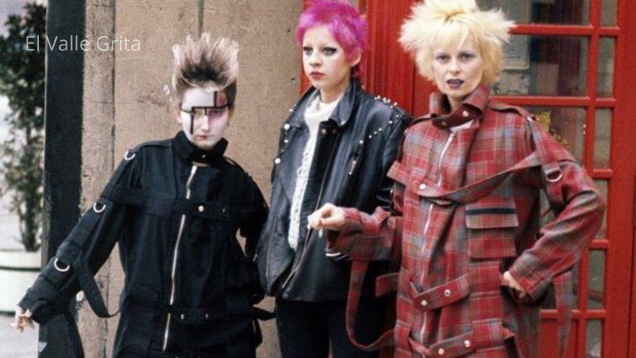How the Punk Music Revolution Changed the World


How the Punk Music Revolution Changed the World
More Than Just Music—The Punk Movement That Shook the World
El Valle Grita – Punk is more than just a genre of music—it’s a cultural revolution. What started as an underground, anti-establishment movement in the 1970s quickly became a global force that influenced not only music but also fashion, politics, and social activism.
From the raw, rebellious sounds of The Sex Pistols and The Ramones to the modern punk resurgence, this movement has inspired generations to challenge norms and embrace individuality. But how did punk go from being a subculture to a worldwide phenomenon?
Let’s explore the impact of the punk music revolution and how it continues to shape the world today.
Read more :Arti Mimpi Usaha Bangkrut: Kode Alam Prediksi Keramat 2D 3D 4D
The Birth of Punk: A Sound of Rebellion
In the early 1970s, rock music was dominated by long, intricate compositions and overproduced albums. Then came punk—a raw, fast, and aggressive style of music that rejected mainstream excess.
The punk revolution began in the UK and the US, with bands like:
- The Ramones (USA) – Known for their fast-paced, three-chord songs that stripped rock down to its core.
- The Sex Pistols (UK) – Anarchic and rebellious, they challenged the political system and social norms.
- The Clash (UK) – Infused punk with political messages, blending rock, reggae, and ska influences.
These bands weren’t just making music—they were sending a message. They called out corruption, rejected conformity, and empowered youth to question authority.
Punk’s Influence on Music: Breaking the Rules
Punk reshaped the music industry by proving that anyone could be a musician. Unlike traditional rock bands that focused on technical perfection, punk bands embraced:
Raw, unfiltered energy over complex compositions.
DIY (Do-It-Yourself) ethics, where anyone could start a band without needing a record label.
Short, explosive songs with direct and rebellious lyrics.
This DIY mentality led to the rise of independent labels like Stiff Records, Epitaph, and Dischord, allowing bands to control their music without interference from corporate giants.
Punk and Fashion: A Statement of Defiance
Punk wasn’t just about music—it was a fashion revolution. Rejecting mainstream trends, punk fashion was about anti-conformity and self-expression.
Key elements of punk style included:
- Ripped clothing and safety pins – A statement against consumerism.
- Spiked hair and mohawks – A bold rejection of social expectations.
- Leather jackets and band patches – Symbolizing rebellion and individuality.
Figures like Vivienne Westwood helped bring punk fashion into the spotlight, making it a defining cultural aesthetic that still influences today’s streetwear.
Punk’s Political and Social Impact
Punk wasn’t just about music or fashion—it was a political movement. The lyrics and actions of punk bands often addressed serious issues, including:
- Government corruption
- Social inequality
- Racism and discrimination
- Worker’s rights
The Clash’s songs like “London Calling” and “White Riot” tackled class struggles and political unrest, making punk a voice for the unheard.
Punk inspired activism, leading to movements like Rock Against Racism (RAR), which used music to fight racial injustice.
Punk supported LGBTQ+ communities, with bands like Against Me! and Bikini Kill breaking gender norms.
Even today, punk remains a tool for protest and resistance, influencing modern social movements.
Punk’s Influence on Modern Music
The punk revolution didn’t end in the 1980s—it evolved into new subgenres like:
- Pop Punk (Blink-182, Green Day, Sum 41) – Mixing punk’s energy with catchy melodies.
- Hardcore Punk (Black Flag, Minor Threat) – Even more aggressive and politically charged.
- Post-Punk (Joy Division, The Cure) – Adding darker, experimental elements.
Punk’s DIY spirit also paved the way for independent artists in hip-hop, indie rock, and alternative music.